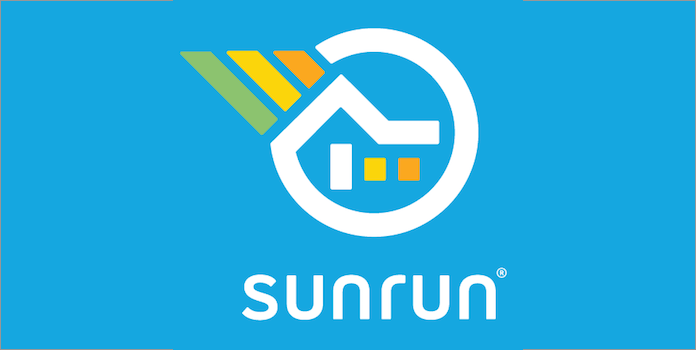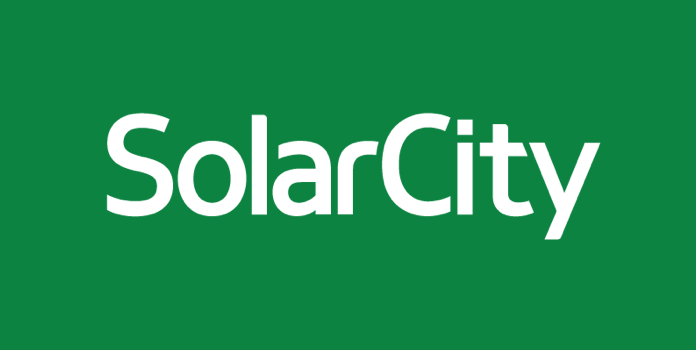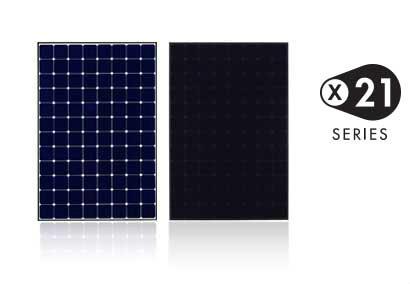Which Residential Installers are the Best Solar Companies?
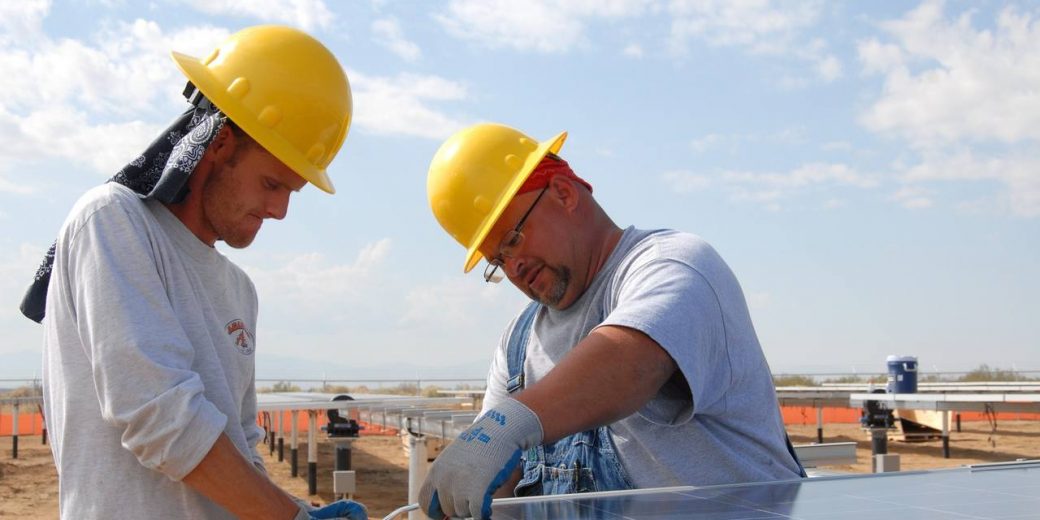
How do you find the best solar companies?
Each of the best solar companies has its own unique story and even among the five largest installation companies in the US, the number of systems installed in a year varies dramatically. To help you in this process, we’ve created this cheat sheet comparing the top 5 residential solar companies. We look at the companies’ age and size, customer reviews, and offerings to homeowners.
What to Look for in a Solar Company
When deciding on what solar company to work with, you must look at a variety of factors – not just total installation cost– to ensure that your installation and the company continue to meet your needs throughout the life of your agreement.
First, we’ll look at the size of each solar company, how old the company is, and what states they work in. This gives us an idea of the expertise and experience of each. The solar industry has exploded in the last 10 years, and many of the best solar companies are just 4 or 5 years old. But what they lack in age, they balance with a staggering number of solar installations each year.
Secondly, we’ll look at customer reviews, giving us an idea of the customer experience, the quality and timeliness of installations, and the ongoing level of customer service after the installation is complete. By comparing the average online rating of different solar companies on sites like Google or Yelp, we can see what sort of experiences their customers have had and how they fare compared to other solar companies.
Lastly, we’ll look at installation options each company provides, as homeowners need solar installations tailored to their energy use and financial situation. Most national solar companies offer fairly similar options, there are differences in their sales and installation processes as well as the equipment they offer. Being able to compare all these different facets will allow you to choose the company that best fits your needs.
Sunrun vs SolarCity vs Sungevity vs Vivint Solar vs SunPower
These solar companies are the top 5 residential installers in the US by size. All of them take customer from initial sales to installation, either through their own company or an affiliated subcontractor. For each company, we highlight potential pros and cons at the beginning of each section, then further discuss the businesses’ history, reviews, and customer offerings.
Sungevity
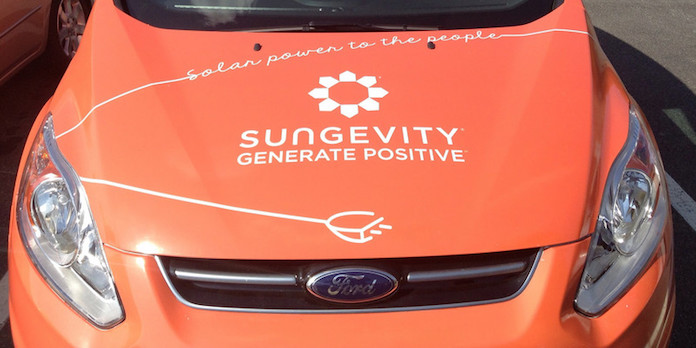
Just a year ago, Sungevity had legions of raving customers and was ranked the #1 solar company on BestCompany. Unfortunately, times have changed and the once-great solar installer has fallen, claiming bankruptcy in early 2017 and laying off hundreds of employees without back pay or severance. In April 2017, the Northern Pacific Group bought Sungevity for $50 million and rebranded it as Solar Spectrum.
Sungevity was such a big – and innovative – player in the residential solar market that we’ve still included them in this list. The fate of Solar Spectrum, neé Sungevity, is anyone’s guess.
The Basics
The Sungevity Model: Sungevity is a platform that connects customers with local installers and financiers. Because they outsource, they can focus on their software and great customer service. At least that was the idea, because it turns out their business was just too expensive to run.
Financing Options
- Solar Spectrum will no longer offer leases, leaving you with
- Cash purchases
- Loans
Notables: Well, it’s pretty obvious. They went bankrupt and dealt with the change poorly, leaving a lot of angry former employees.
The Good
While Sungevity was strong, customers loved their customer service.
Incredible Customer service. Read these four seemingly underwhelming customer reviews from 2017:
“The team was great because they explained step by step what was going on and if I had any questions I could call them up and get an answer. The installation is a little frustrating because of the permits that they have to get here. The inspector was not available; it took almost 4 weeks I think from the time that [the] engineers came out [and] surveyed my roof. It took, overall, about 2 months from start to finish.”
“I like them for the installation system they used. They had to fire the first electrical contractor that they used but other than that, the system was fine.”
“I can’t say anything bad about them. They’ve been very helpful. When I had a problem they got [to] it right away – it was just a circuit breaker. They emailed me a list of things to do and it worked. That’s the only problem I had. The system is top notch.”
“They were very friendly and I had many questions and they answered them all. I did have one technical issue, and they actually contacted me about it before I was even aware of it.”
Frustrating delays, firing electrical contractors, faulty circuit breakers, and a technical issue… What kind of solar company is this?! These people must’ve given Sungevity awful review scores…
But they didn’t. Mr ‘Frustrating Delay’ gave them 10/10, Mr ‘Fired Electrical Contractor’ gave 8/10, ‘Faulty Circuit Breaker’ gave 9/10, and ‘Technical Issue’ gave them 10/10.
What on Earth gives? In an age where everyone can’t complain enough, they leave as four happy customers? And these aren’t isolated incidents, it’s a pattern. This is where Sungevity has no equal. Sure, there might be a few hiccups, but the overwhelming majority of their customers don’t care because they love the customer service.
How does Sungevity pull off this wizardry? Two things. First, when Sungevity began in 2007 the founders made positive energy into one of the pillars of the company. Positive energy, a phrase that here means “shaking maracas in the office every time a customer goes solar.” Yes, seriously.
Second, Sungevity’s unique business model. As a customer-connection platform, they focus on customers more than their competitors.
How it works: You call for a quote. Or to use Sungevity lingo, an iQuote. Using their “remote proprietary design tool” and your annual electricity use, they design a custom solar system for your house. It’ll work out the cost and how much you’ll save with different financing options, all in the blink of an eye. You’ll agree, maracas will be shaken, and then you’ll get a dedicated project manager who’ll connect you with their network of local installers and financiers.
Using Local Installers: Some say it’s a bad thing because it lowers standards. Sungevity disagrees. They believe tapping into local expertise allows them to focus on providing top-notch service. Besides, they say, the tough 2-step quality assurance check keeps installer standards high. The reality is somewhere in the middle. Out-sourcing invariably leads to hiccups, but as the reviews show, if the customer service is great, no-one seems to mind.
Highest-Rated Solar App on the App Store: Their “OurSungevity” app lets you track savings, production, and energy consumption in real-time. You can even track the 6-step installation process, too. Plus, there’s a built-in referral button. Refer to your heart’s content.
Giving Back: Sungevity provides solar-powered light and cell phone charging kits to off-the-grid kids in Zambia and provides solar power to non-profits like the Sierra Club and the American Diabetes Association.
The Bad
No Back-Up Power: If the grid goes down, so does your lights.
Again, the Bankruptcy: With heavy software investments, Sungevity’s past nine years have been tough. 2017 was supposed to be an inflection point. They declared bankruptcy on March 13. Newly appointed Chief Administration Officer, William Nettles, said of the situation:
“The agreement we have reached with the team led by Northern Pacific Group and its co-investors is a testament to their confidence in the future of Sungevity’s business. The actions we have announced today will allow Sungevity to emerge as a stronger and more competitive company. With its market-leading software platform and its high-quality employees who provide unwavering commitment to customers and exceptional service, Sungevity intends to be at the forefront of the industry as solar continues on its growth trajectory in the years ahead.”
So, confidence from the top brass. All we can say is that if the end is nigh for Sungevity, they’ve got the best eulogy in the business. Said a Mr. Robert:
“I had six companies come to the house and the first four would not put solar panels on both [the] front and back of my house. The fifth company came out; they would do it, but their price for the lease was double. Sungevity came in and made me a great offer – [they] would put panels on both [the] front and the back. They stood behind their word and everything. I had an electrical piano that needed to be replaced, [and] they replaced it – no charge to me – which I thought was fantastic. I’m just very happy with the system, it’s making more than they actually accounted for and I’m very happy with it.”
SunRun
Not many solar companies can attest to being born next to a pumpkin. SunRun can. In a county fair near Sacramento in 2007, founder Lynn Jurich got her first customer. What she was selling was revolutionary: a solar panel lease. SunRun and the solar industry have come a long way since then. SunRun installs a solar system every six minutes, and solar leasing was the industry standard (though now it’s been taken over by cash purchases and loans).
The Basics
The SunRun Model: SunRun operates in a similar fashion to Sungevity. Banking on the expertise of local solar companies, SunRun outsources to a large network of partner installers, enabling them to serve more customers. Unlike many competitors, SunRun focuses exclusively on residential.
Financing: They’ve got a lot of fancy names for some very common financing.
- BrightSave Monthly (lease or PPA)
- BrightSave PrePaid (lease or PPA)
- BrightSave Advantage (Cash purchase)
- BrightSave Buy (Loan)
Notables: All financing options include rate increase protection and workmanship warranties. For PPA and leasing, performance is guaranteed at 100% and 95% respectively. Agreement terms are 20 years. 24/7 monitoring, insurance, and performance guarantees are only included for leasing and PPA options (as with all installers).
For Purchasing and Loans: Because SunRun doesn’t make its own equipment, they offer no performance guarantees on the panels and inverters. Instead, you’ll receive the manufacturer’s warranty. However, there is a 10-year workmanship warranty period, in which they’ll fix anything for free as a result of a shoddy installation.
The Good
Battery Storage: SunRun has an optional extra-cost battery storage system they’ve named “BrightBox” where they’ll install a Tesla Powerwall in your home. These Powerwalls store solar energy during the day so that you don’t have to rely on expensive peak-time grid electricity at night. It also means you won’t be in the dark if the grid goes down.
Powerwalls have over double the capacity of conventional home batteries, are almost silent, and come with a 10-year warranty. Plus, it keeps you powered when the grid goes down, and juggles solar and grid electricity to maximize cost savings. The BrightBox is available through all four financing options, but only in certain areas of the country where electricity is expensive, notably California and Hawaii.
Powerwalls have over double the capacity of conventional home batteries, are almost silent, and come with a 10-year warranty. Plus, it keeps you powered when the grid goes down, and juggles solar and grid electricity to maximize cost savings. The BrightBox is available through all four financing options, but only in certain areas of the country where electricity is expensive, notably California and Hawaii.
The Website: SunRun has heaps of information online, and nicely presented, too. There are Home Solar articles that cover the basics, a FAQ page, a “Go Solar Center” that discusses solar news around the nation, and there’s a video section. It’s extensive, and the transparency is a plus. Well played, Sunrun.
Customer Service: It’s a big sales point on their website. “No impersonal overseas call centers with prewritten scripts. Instead, really smart people who if you met a party, would probably be your friend.” Not in the same league as Sungevity, though. (Remember how they replaced that customer’s electric piano? Yes, a piano.)
Moving House: Although it’s industry standard to lend a helping hand if you’re moving house, SunRun goes beyond the call of the duty. Their Service Transfer Specialists help you sell your solar home by “educating” realtors, potential buyers, escrow officers, title agents and home inspectors, making sure they know what’s what. If the buyer doesn’t want the system, you can pay off the remainder, and bundle it into the selling price of the home.
Partnership Model: Like we said, SunRun are big fans of tapping into the expertise of local installers. Much like Sungevity, the verdict’s still out whether this is good or bad. SunRun, however, does their own installations in some states. All their partner installers are certified, and in addition, SunRun works with notable outlets, such as Costco, bringing their solar message to society-at-large.
The Bad
Outsourcing & Customer Service Issues: As we said, the verdict’s still out on outsourcing. Quality control is obviously more difficult, but for every unhappy customer, there’s a ton of happy ones. Customer service, likewise. On BestCompany, the average user rating was 7.3/10, based on 230 reviews. Compare that to Sungevity’s 8.8/10, based on 385 reviews. Whereas Sungevity only has a handful of awful reviews, SunRun’s reviews are hit-and-miss.
Moral of the story: check SunRun’s reputation in your neighborhood.
SolarCity
There are people who push the envelope, then there are people who push the envelope. SolarCity is the latter. Under the stewardship of the Rive Brothers and Elon Musk, the California-based company has brought solar power to over 285,000 homes and is the biggest player in the industry.
The Basics
The SolarCity Philosophy: Like their parent company, Tesla Motors, SolarCity does everything in-house. Installation, software, and – since the completion of their new factory in Buffalo – panel manufacturing, too. This is advantageous, because SolarCity doesn’t pay the profits of other companies, retains complete quality control, and has free reign to innovate. The big downside is a huge capital investment.
Financing:
- Solar Lease
- Cash-Purchase
- Loan
SolarCity offers in-house loans, either on 10 or 20-year payment schedules, which they package up and sell as solar bonds to investors. Leases and PPAs are 20-year agreements. Both have low, fixed rates, but come with a 0-2.9% annual escalation.
The Good
Excellent Hardware. SolarCity installs (and owns) Zep, a leading solar mounting hardware manufacturer. Zep hardware allows your panels to look sleek, modern, and contoured to your roof. Your neighbors won’t be able to keep their eyes off these things. Everything the panels need to stick to your roof is hidden from sight. Redirected plumbing vents, integrated front skirts, hidden clamps… it’s all sleek and sophisticated.
And that’s not all.
The solar panels SolarCity installs boast incredible performance and durability. On their website (see link), they claim their panels last 35 years – a decade longer than conventional panels. They also claim their micro-inverters are four times better than the industry standard.
SolarCity achieves these feats with their brutal testing conditions that go far beyond what’s required. Panels go through three times as many thermal cycles and spend twice as long in Florida summer humidity levels as standard. After each test, men in white coats stroke their chins, and make the panels even better.
Plus, their team has flown over a million miles to hunt down the best equipment from all corners of the Earth.
Powerwall Battery Back-Up: Like Sunrun, SolarCity also installs Tesla’s Powerwall. The cost for keeping your Netflix binge going strong in a power outage? An extra $48 a month at the minimum – which over the life of the 20-year agreement works out to $11,520. This is over twice as much as the actual Powerwall. I’m not sure where that extra $6,000 is going…. but you better do your math before signing this agreement.
Solar Roof: When SolarCity/Tesla launches their solar roof tiles in late 2017, they’ll likely change solar forever. From the street, it looks like, well, a normal roof. Meanwhile, the solar tiles are powering the entire home. How much will one set you back? Because you’d buy it instead of a normal roof, not as much as you’d think. Elon Musk says it’ll cost less than a traditional roof although actual costs are yet to be published.
The Bad
Customer Service is Lacking: Remember Sungevity’s 9/10 customer score? SolarCity’s is a lousy 5.8/10, based on some 300 reviews. There’s almost an even split between “SolarCity is awesome!” and “SolarCity should burn in hell!” You could put this down to SolarCity being such a rapidly growing company, and that’s certainly part of it, but it doesn’t explain away everything.
Here’s the flak that consistently comes SolarCity’s way:
- Contract Transparency (or lack thereof). Customers sign contracts, only later to find out about nasty escalation fees, liens on their home and contradictory clauses. Legally, it’s your responsibility to read the T&C’s before you sign on the dotted line, but you expect the solar company to have your interests at heart.
- Putting Panels on the Wrong Side of the Roof. You’d think a company of SolarCity’s prestige would be above such rookie mistakes. But it happens.
- Inconsistent Energy Production Estimates. They tell you one thing, but you get another, leading to paying more, not less for energy bills.
- Woeful Communication. Disinterested sales reps and managers, refusal to budge or go the extra (quarter) mile, inability to get in touch with the same person, no-one to help with problems after signing the agreement, etc.
Of course, Solar City has installed over 285,000 solar systems. So let’s put this into perspective –they have a LOT of extremely happy customers. But compared to other solar companies, their customer service is sub-par.
Vivint Solar
Vivint, the home-security company that brought the door-bell peephole app to the nation, now brings you solar offerings. And solar offerings indeed – Vivint Solar is the second biggest residential solar installer on the market today.
The Basics
The Vivint Model: Like SolarCity, Vivint does all of its own installations. Although Vivint and Vivint Solar are separate entities, going solar with Vivint Solar is going to work especially well for existing Vivint customers.
Financing:
- PPA
- Lease
- Purchase
- Loan
Notables: The loan and lease agreements are 20 years. Loans are financed in-house, with flexible payment terms. Maintenance and 24/7 monitoring are provided for all financing options. With leasing, they’ll pay the difference for under-performing panels, which are guaranteed to have a minimum of 80% of the initial power rating by year 20.
The Good
Moving House: Vivint are so adamant about this on their website that you wonder if Vivint Move isn’t an offering they’re trying to grow. If you want to migrate to greener pastures, you get four options. You can transfer the agreement to new owners, get the system relocated at no additional cost, pay off the remainder, or purchase the system outright if you’ve been under contract for more than six years.
In-House Installation: Because Vivint does it themselves, they can ensure consistent high-quality installations. Especially considering they have a 94-point quality inspection. It also means you know who to call and who’s responsible if something goes wrong.
Home Security: Technically not an advantage if you’re not looking for home security. But if you are, then you might want your solar and security coming from the same place. Or you might not…
The Bad
Customer Service: Despite its A+ rating on BBB, it gets slammed by customer reviews from all corners of the internet. On BestCompany, the average user review is 6.8, based on almost 450 reviews. Gripes include hard inquiries into credit without permission, delays, and false promises that the system could be removed if customers were unsatisfied with it. Bottom line: read the contract carefully before you sign.
The Website: It’s sparse in the information department, to say the least. If you’re considering Vivint, make sure you know what you’re getting by talking to their reps on the phone.
SunPower
SunPower, “Creating the Mother of All Solar Panels since 1985.” That’s not actually their motto, but it should be. Because if one company knows how to make panels, it’s SunPower.
The Basics
The SunPower Philosophy: SunPower runs a similar shop to SolarCity – it does everything in-house. It makes (ridiculously good) panels, it builds software and does most of its installations.
Financing: Pretty standard offerings
- Solar Lease
- Cash-Purchase
- Loan
Notables: Their incredible panels. Yes, they really are that good.
The Good
Ace Solar Panels: SunPower is widely acknowledged as the best panel manufacturer in the world. Their panels hold the world record for efficiency among silicon panels in production (at 24% efficient). Efficiency isn’t the be-all and end-all. Cost per watt is much more important. And as you can see from this handy chart, SunPower’s panels aren’t a cheap source of solar energy. So, do we consign SunPower to irrelevance?
No. Because with SunPower, you get what you pay for. Consider their durability: SunPower’s scientists found and eliminated 85% of the reasons why conventional panels fail. Thus, SunPower panels are the most durable in the world – their panels have a useful lifetime of over 40 years. Yes, 40 years.
Plus, SunPower’s performance guarantee of a minimum of 87% efficiency by year 25 beats everyone else, hands down. But their trump card is the product warranty, i.e the time period in which companies will replace malfunctioning or broken panels. Industry standard: 10 years. SunPower: 25 years.
And then there’s aesthetics. Have you seen these things? If there was ever a World’s Sleekest Solar Panel competition… My money’s between SunPower and SolarCity. All black, slick and sophisticated… They’re like a tuxedo for your roof. And because they take up less space for the same power generation, they look stylish, not smothering.
If you’ve got a tiny roof, think of them as a necessity. If you’ve got a large roof, think of them as a touch of class.
SunPower Equinox Platform: Enter SunPower’s all-in-one solar energy system. Everything – microinverters, panels, software – is built by SunPower themselves and they’re the first company to offer such a thing. The huge advantage to this? Aside from seamless integration and one number to dial if things go wrong, your warranties also come from just one place. Talk about easy.
The Monitoring: Said SunPower, “The only solar monitoring technology built with 4 automatic backup communication options so you always have real-time access to your system.” Never again be caught out at a bar without a real-time analysis of your energy production – we all know this is something you were worried about.
The Website: Go there. Spend a couple of days marveling at what a treasure trove it is.
Sustainability: SunPower is the only solar panel manufacturer in the world to earn the prestigious Cradle to Cradle Silver certification. They earned said award by sourcing environmentally-sound materials, end-of-life recycling, use of renewable energy in manufacturing, and responsible water management.
But to really let the SunPower sustainable ethos sink in, you’ll have to stroll over to the sustainability section of their website. There, you’ll see a sheep grazing below solar panels. You may think, “That’s just a load of marketing bull,” until you read that sheep are their go-to low-impact grass-cutting method. You’ll also learn that they build solar power plants only on previously occupied land, bring in topsoil, and stick sheep and panels down.
Any solar company with sheep as their lawnmowers gets our vote.
The Bad
Customer Service & Outsourcing: It’s easy to see where SunPower focuses its efforts: solar panels, seamless integration of software and hardware, and sheep sustainability solutions. And kudos to them – they do these things very well. The same can’t be said for customer service. Many of the problems come from SunPower outsourcing to local installers, resulting in inconsistent service. Customers complain of delays, incorrect energy estimations, and communications breakdowns. Their BestCompany customer rating is 6.7/10.
Many of the problems come from SunPower outsourcing to local installers, resulting in inconsistent service. Customers complain of delays, incorrect energy estimations, and communications breakdowns.
Local vs National Solar Companies
Unlike national solar installers, in which there are a handful of well-known companies that dominate the market, there is an endless variety of small local installers in cities all over the United States. In the Denver, CO, area alone, there are 204 solar installers on Yelp! In San Francisco, there are 660! While these numbers do include national companies working in the area, it just goes to show how many installation companies are out there!
If you’re trying to decide between working with one of the national installers above or a small, local company, here are a few key points to consider:
Cost
Because of their sheer size, national installers can operate more cheaply than a local company. They can order huge numbers of solar panels and equipment at discount prices, hire remotely, and create ultra-streamlined processes. However, most are also mired in debt and suffer from extremely high overhead costs.
Small, local companies, on the other hand, avoid most of that high overhead by having a small installation team, avoiding fancy offices, and running a small operation. In fact, the National Renewable Energy Lab found in 2017 that national installers typically charge 10% more (page 5) than small or mid-sized installers.
Customer service
You probably noticed that most of the big installers above enjoyed less than perfect online reviews, mostly due to poor communication and customer service.
Local companies, on the other hand, will be working with fewer customers at any one time and therefore can offer more hands-on customer service.
Post-installation support
Just like before and during the installation, local companies can easily provide attentive support throughout the life of the installation. If something goes wrong, it’s easy to call up the company and have someone check out your system.
Post-installation support with national companies will be more standardized. If equipment malfunctions or energy production decreases, homeowners likely will call the company’s customer service for help and, if necessary, to schedule a maintenance or repair visit.
With local companies, it’s difficult to know which ones will give excellent support once your project is complete, so you’ll still need to read reviews and talk to friends or family who’ve worked with the company.
Financing options
Solar companies that offer solar leases or PPAs need huge sums of money – in the millions of dollars – to begin offering these agreement types on a large scale. National solar companies partner with banks and investment companies to fund the thousands of leased solar installations across the US.
As you can imagine, it would be difficult for a small local company to raise the kind of capital to offer leases and PPAs, so most work with customers that finance their solar installations through cash or a 3rd party loan.
If you want a lease or PPA, the decision between a national or local solar company is probably already made for you, though it’s certainly worthwhile to call a few local companies and ask what financing types they’ve worked with in the past.
So, who’s the best: Sunrun vs SolarCity vs Sungevity vs Vivint Solar vs SunPower?
Picking the best solar company is kind of like picking the best ice cream. One flavor isn’t better than the others. It depends on where you are, the mood you’re in, and your appetite for risk.
If you want great customer service, go Sungevity (if they can get their act together post-bankruptcy). If you want a solid solar installer that hasn’t recently gone bankrupt, go SunRun. If you want some sexy solar panels, go SolarCity or SunPower. Or, if you want your home security and solar system all from the same place, Vivint it is.
Whatever you do, speak to the companies, get quotes, and if you have the stomach for it, ruthlessly pit one company against another to get the best price you can.
On impartiality
For this article, we didn’t use any customer reviews that were on individual companies websites. Instead, we used the reviews on BestCompany, a third-party review website. Why? First, they have by far the most reviews of any review site: bigger sample size equals a bigger picture.
Second, to enter the site, one needs to click a box to confirm they’re not a robot. (Although admittedly, if you were an ill-meaning superbot, an “I am not a robot” box wouldn’t be much of a hurdle to digital domination.)

